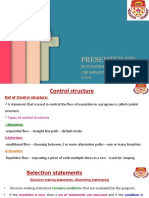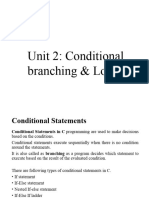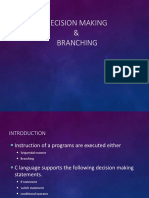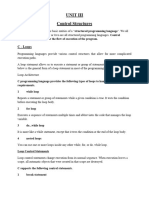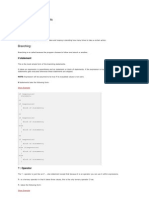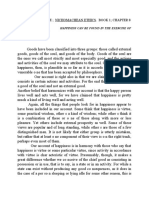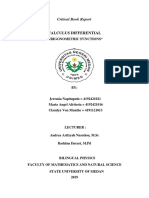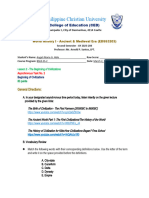0% found this document useful (0 votes)
89 views58 pagesC Programming Control Statements Guide
The document discusses control statements in C programming. It describes two types of control statements: conditional statements and unconditional statements. Conditional statements include if, switch, while, do-while, and for statements which allow conditional execution of code. Unconditional statements include goto, break, and continue which allow unconditional jumps in a program's flow. The document provides examples and explanations of how each control statement functions.
Uploaded by
anurag232003Copyright
© © All Rights Reserved
We take content rights seriously. If you suspect this is your content, claim it here.
Available Formats
Download as PDF, TXT or read online on Scribd
0% found this document useful (0 votes)
89 views58 pagesC Programming Control Statements Guide
The document discusses control statements in C programming. It describes two types of control statements: conditional statements and unconditional statements. Conditional statements include if, switch, while, do-while, and for statements which allow conditional execution of code. Unconditional statements include goto, break, and continue which allow unconditional jumps in a program's flow. The document provides examples and explanations of how each control statement functions.
Uploaded by
anurag232003Copyright
© © All Rights Reserved
We take content rights seriously. If you suspect this is your content, claim it here.
Available Formats
Download as PDF, TXT or read online on Scribd
/ 58

